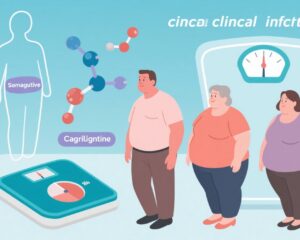Highlight
- Pemigatinib, a potent FGFR1-3 inhibitor, showed an overall complete response rate of 74% in MLN-FGFR1 patients without a concurrent control group.
- Chronic phase patients achieved a remarkable 96% complete response rate, while blast phase patients had a 44% complete response rate.
- Treatment was associated primarily with manageable hyperphosphatemia and stomatitis, with dose modifications effectively controlling toxicities.
- The median duration of response was not reached, indicating durable efficacy in this rare yet aggressive hematologic malignancy.
Study Background and Disease Burden
Myeloid/lymphoid neoplasms with fibroblast growth factor receptor 1 rearrangements (MLN-FGFR1) are hematologic malignancies driven by chromosome 8p11 translocations that result in FGFR1 fusion genes. These genetic alterations cause constitutive activation of FGFR1 kinase activity, leading to uncontrolled cell proliferation and resistance to standard therapies. Clinically, MLN-FGFR1 is characterized by aggressive disease progression, poor prognosis, and limited effective treatment options. Current therapeutic strategies before pemigatinib adoption include allogeneic stem cell transplantation and chemotherapy, both with limited success and significant morbidity.
The pathogenic role of FGFR1 fusion proteins has provided a rationale for targeted inhibition using selective FGFR1-3 inhibitors. Pemigatinib is a selective, orally bioavailable FGFR1-3 inhibitor which has shown promise across FGFR-driven malignancies. The phase 2 FIGHT-203 trial investigated its efficacy and safety in this patient population to fill the urgent unmet need for effective targeted therapies in MLN-FGFR1.
Study Design
FIGHT-203 is an open-label, single-arm, phase 2 clinical trial conducted without a concurrent control group. Eligible patients with confirmed MLN-FGFR1 were enrolled and received oral pemigatinib 13.5 mg once daily, administered either continuously or in a cyclic regimen of two weeks on treatment followed by one week off. The primary endpoint was the complete response rate, while the secondary endpoints included complete cytogenetic response rate and assessment of safety and tolerability.
Patient selection included those in various disease phases: chronic phase, blast phase, or harboring FGFR1 rearrangements without morphologic bone marrow or extramedullary disease involvement. Responses were initially evaluated by site investigators per protocol-defined criteria and subsequently reviewed and adjudicated centrally using committee-established guidelines.
Key Findings
The study enrolled 47 patients, with 45 confirmed to have FGFR1 rearrangement and included in efficacy analyses. The cohort included 24 patients (53%) in chronic phase, 18 (40%) in blast phase, and three (7%) with isolated FGFR1 rearrangement without overt disease.
The centrally reviewed overall complete response rate was 74% (31/42 patients), with an impressive 96% (23/24) among chronic phase patients and 44% (8/18) among those in blast phase. The study also reported a complete cytogenetic response rate of 73% (33/45), comprised of 88% in chronic phase, 50% in blast phase, and complete cytogenetic clearance in all three patients with rearrangement only.
The median duration of response was not reached, with the 95% confidence interval ranging from 27.9 months to not reached, highlighting durable remissions with pemigatinib treatment.
Regarding safety, the most frequent any-grade treatment-emergent adverse event was hyperphosphatemia, occurring in 76% of patients. The most common grade 3 or higher adverse event was stomatitis, in 19% of patients. Dose modifications, including interruptions (64%), reductions (60%), and discontinuations (11%), were employed effectively to manage toxicities without compromising efficacy.
Expert Commentary
The FIGHT-203 study provides compelling evidence for the targeted inhibition of FGFR1 as a transformative therapeutic approach in MLN-FGFR1. The near-complete response rate in chronic phase patients marks a significant advance over historical outcomes, where prognosis has been dismal. Even in the blast phase—a more aggressive stage characterized by a higher tumor burden—the response rate of 44% is encouraging given the lack of prior targeted therapies.
The manageable safety profile of pemigatinib, particularly the prevalence of hyperphosphatemia and stomatitis, aligns with the known on-target effects of FGFR inhibition and was successfully addressed with standard supportive care and dose adjustments. Moreover, the durability of response suggests that pemigatinib may offer prolonged disease control, potentially delaying or obviating the need for more toxic interventions like allogeneic stem cell transplantation.
Limitations of the study include its single-arm design and lack of a comparator arm, which necessitates cautious interpretation of efficacy data. Additionally, longer follow-up is needed to fully characterize the survival benefits and long-term safety profile. Future studies could further validate these results and explore combination regimens to improve outcomes in blast phase MLN-FGFR1.
Conclusion
Pemigatinib represents a promising targeted therapy for patients with myeloid/lymphoid neoplasms harboring FGFR1 rearrangements. Offering high rates of complete response, especially in the chronic phase, along with manageable toxicities, it addresses a critical unmet need in this rare but aggressive hematologic malignancy. While the findings of the FIGHT-203 phase 2 trial warrant validation in larger cohorts, pemigatinib is poised to become a new standard of care, improving prognosis and quality of life for these patients. Ongoing research should continue to refine treatment paradigms, optimize dosing strategies, and investigate synergy with other modalities.
References
Verstovsek S, Kiladjian JJ, Vannucchi AM, Patel JL, Rambaldi A, Shomali WE, Oh ST, Usuki K, Harrison CN, Ritchie EK, Akard LP, Hernández-Boluda JC, Huguet F, Colucci P, Zhen H, Oliveira N, Gilmartin A, Langford C, George TI, Reiter A, Gotlib J. Pemigatinib for Myeloid/Lymphoid Neoplasms with FGFR1 Rearrangement. NEJM Evid. 2025 Sep;4(9):EVIDoa2500017. doi: 10.1056/EVIDoa2500017. Epub 2025 Aug 26. PMID: 40856555.



